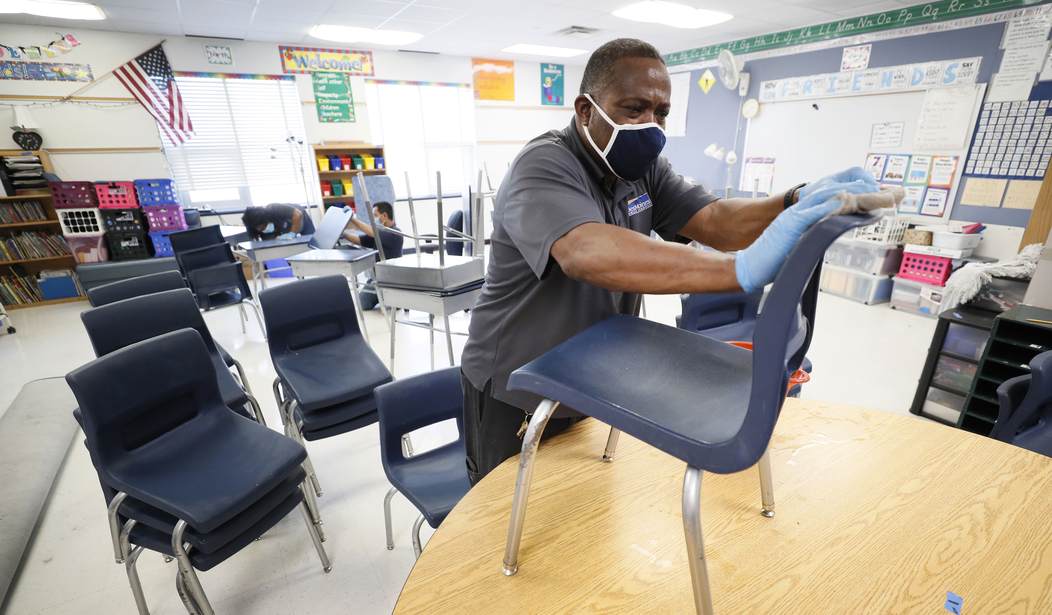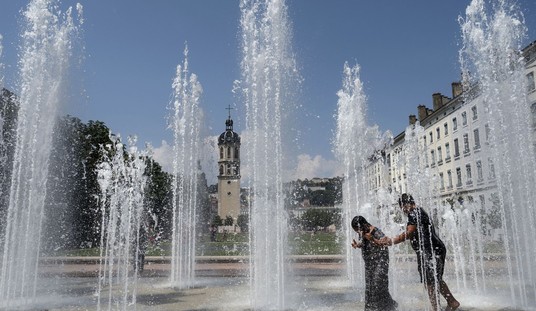Last month, we were inundated with stories from teachers’ unions, school administrators, and public health officials about the coming catastrophic outbreak of coronavirus in the schools.
It’s still happening, with New York City schools ready to partially reopen and many other school districts allowing only virtual learning.
But experts tracking the pandemic have been surprised that the expected disaster of tens of thousands of kids getting sick hasn’t happened — yet.
It still might get very bad as large school districts begin to reopen, but so far, the number of infections among K-12 students has been far less than public health officials feared.
Thousands of students and teachers have become sick with the coronavirus since schools began opening last month, but public health experts have found little evidence that the virus is spreading inside buildings, and the rates of infection are far below what is found in the surrounding communities.
This early evidence, experts say, suggests that opening schools may not be as risky as many have feared and could guide administrators as they charter the rest of what is already an unprecedented school year.
“Everyone had a fear there would be explosive outbreaks of transmission in the schools. In colleges, there have been. We have to say that, to date, we have not seen those in the younger kids, and that is a really important observation,” said Michael Osterholm, director of the Center for Infectious Disease Research and Policy at the University of Minnesota.
There is a lot to learn about the coronavirus. The media thinks every pronouncement from “experts” should be believed and acted upon and anyone who doesn’t is a “science denier.” But knowledge is cumulative. And when studying a new pathogen, what was true yesterday — or thought to be true — might not be true today — or believed to be true. It might not be true tomorrow.
That’s why people like Dr. Fauci, Dr. Birx, and the rest of them should try to go a few days keeping their mouths shut. We’d be the wiser for it.
Public health officials no doubt were sincere in urging communities not to reopen schools. But they were wrong.
On Wednesday, researchers at Brown University, working with school administrators, released their first set of data from a new National COVID-19 School Response Data Dashboard, created to track coronavirus cases. It found low levels of infection among students and teachers.
Tracking infections over a two-week period beginning Aug. 31, it found that 0.23 percent of students had a confirmed or suspected case of the coronavirus. Among teachers, it was 0.49 percent. Looking only at confirmed cases, the rates were even lower: 0.078 percent for students and 0.15 percent for teachers.
“These numbers will be, for some people, reassuring and suggest that school openings may be less risky than they expected,” said Emily Oster, an economics professor at Brown University who helped create the tracker. She noted that the school coronavirus rates are “much lower” than those in the surrounding community.
They will point to the ambiguity of their previous statements on opening schools, but the bottom line is, they urged parents to keep their kids home and told unions it was unsafe to work. What the study shows is that with proper sensible precautions, kids will be fine at school.
Why Can’t the U.S. Be More Like Europe? This Is Why










Join the conversation as a VIP Member